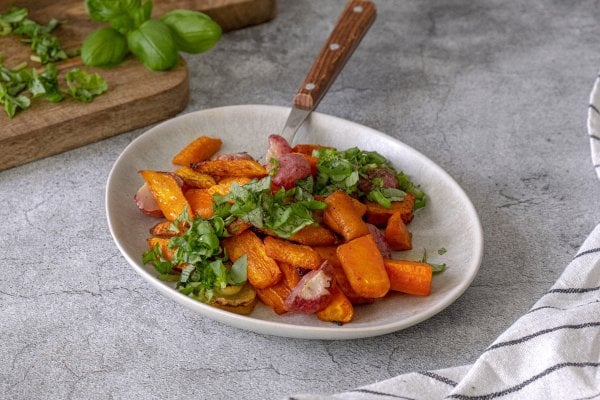Silver and gold are a very important strategy to us in today’s day and age. Living this homesteading life, we’re concerned with many things going on in the world. Having a financial strategy that hedges some of the realities of the world is very important.

The Moneychanger, Volunteer Precious Metals and Franklin Sanders have been very good guides to us over the years in developing our financial plan.
Table of Contents
ToggleAbout Franklin Sanders
Franklin Sanders is a precious metals expert. He’s also an author, writer, speaker, investor and army veteran. He’s been studying economics and monetary systems since the late 1960s.
Since 1980, he has operated a gold and silver exchange business as founder and owner of The Moneychanger.
Top 10 Commandments of Buying Gold & Silver
Rule #1 – Always Take Delivery
Gold and silver are the ultimate cash. But they don’t do you much good if you don’t have access to it when you need it. Franklin’s advice is to have the gold and silver stored where you can access it 24/7.

Rule #2 – Never Buy Premium
Premium is what you pay above and beyond the value of the coin. There will always be a little bit of a premium, but what you want to avoid are collector coins or “modern rarities.”
Modern rarities are coins that are claimed to be very rare and are predicted to increase in value because they’re “one of a kind.” Franklin says these kinds of coins have a premium of 40-100%, but they’re a gimmick, never increase in value and are generally a waste of money.
Pro Tip: Franklin also says if you ever see IRAs that are backed by a celebrity, to run the other way!
What you want to do is to figure out the cost of the coin per ounce. Take the cost of the item and divide it by the content of the item.
For example, if it cost you $18 for one dollar of 90% silver coin and it has .715 ounces of silver in it. You’re paying $25.175 per ounce. If you know the amount, then you can compare it to the spot gold or silver price.
The spot gold or silver price is the basis price used. You want to keep the price per ounce you pay on your gold or silver as close to that spot price as possible. This will fluctuate with the various market conditions. Right now, in 2024, premiums are very low. Two years ago, they were very high.
Franklin usually tells people that they can expect to pay between 4-9% premium (never pay over 10%). The value of the coin has to increase by your premium before you’ve made any money. Furthermore, he always recommends shopping around.
Rule #3 – Buy Bullion for Business – Numismatics for Fun
Numismatic coins are collector coins. This can be fun, but it doesn’t make for a great investment.
If you’re in the business of trying to hedge your paper dollars and insure your future, then you want to stick with business, and this is bullion. Bullion comes in bars or coins, and the item is valuable simply for its gold or silver content.

Rule #4 – Buy Silver First, Then Gold
Most people think they should buy gold first, so I asked why Franklin recommends silver first. The bottom line, historically, silver has already been around as money for centuries. It’s also undervalued, so this is a great starting place when thinking about investments.
How much silver should you have on hand? Think about what is best for your family. Franklin recommends having at least two or three months of living expenses on hand in silver.
If you’re just getting started, the best strategy is to buy some silver every month, much like you would put money into savings each month. Volunteer Precious Metals actually has a plan to do this called the Monthly Acquisition Plan.
When you invest like this you’re getting it at dollar cost averaging. So it works out to a better average price.

Rule #5 – Buy Small Gold First, Then Large
The logic for buying smaller gold is that an ounce of gold costs approximately $2,300 today (in 2024). How many times do you ever go shopping with a $2,300 dollar bill? You don’t! So, buying small gold coins means you’ll be able to use them without having to break them up into smaller quantities first.
Though buying gold in smaller quantities costs slightly more, it’s a better decision when considering how we’ll use our gold in the future.
Franklin reminds us that “premium always disappears,” so buying gold with as little premium as possible will always give the best return on investment.
Rule #6 – Never Buy Exotic Coins or Modern Rarities (Or Anything You Don’t Understand)
People see so many things pitched as the “next great thing,” and buyers most often don’t understand them. They don’t understand the market they’re in or the forces that drive the market they’re in.
This is why working with a dealer who understands the market and how it works is smart. This leads us to rule #7!
Rule #7 – Know Your Dealer
This can be difficult to do today when there aren’t really walk-in gold dealers on every block. Franklin recommends checking the Better Business Bureau (BBB). Ask around to your friends, or get a recommendation from friends you know have bought gold or silver.
Franklin recommends looking for family-owned operations as well. This is why we decided to film this Pantry Chat with Franklin because his company, The Money Changer, would be my recommendation for those looking to invest their money in gold or silver.
It’s then my recommendation to get someone on the phone and ask them all your questions before deciding to invest. If they’re willing to spend the time to explain and teach you, then it’s possible they’re the right person.

Rule #8 – What Governments Can’t Find, They Can’t Steal
Franklin says gold and silver are the ultimate cash. So, we must find a place to put them away where the government can’t find them. Though we’re not in the Great Depression Era, it’s still wise to keep your gold in an area where it’s not “findable.”
Franklin gives some great examples of where you might store your gold and silver at minute 37:46.
Rule #9 – Never Swap Bullion Coins For U.S. $20 Gold Pieces
Franklin said that many investors will tell you the $20 gold pieces will increase in value over the years. However, Franklin shared that he’s been tracking these for years, and their value hasn’t increased (with one exception, he said) since 1998.
He says stay with bullion. Stay with a gold or silver item whose price is directly tied to the gold or silver price. It doesn’t have extra premium, collectors value, etc.
Rule #10 – Never Break the Law
In 1979, under the Bank Secrecy Act, they started passing cash reporting requirements. Meaning, if you give someone more than $10,000 in cash, it has to be reported.
Therefore, don’t go into a coin dealer with $11,000, telling them you want to pay cash. That coin dealer will think you’re part of the government and may not help you!
In all of this, our biggest encouragement is to do your research and gain confidence in investing your money. We don’t need to invest out of fear but rather with confidence that we’re setting our future up on the right foot.

Where to Find Franklin
You can find Franklin at The Money Changer or his sons at Volunteer Precious Metals. Both of those websites have multiple articles where you can go to learn more about investing in gold and silver. Or call 888-661-4093.
Franklin also has written three books called At Home in Dogwood Mudhole (Volumes One, Two and Three). They’re such great reads and I highly encourage you to check them out.
More Posts You May Enjoy
- Planning & Preparedness for Uncertain Times
- Preparedness Steps for a Rocky 2024
- Positivity and Preparedness in Uncertain Times
- Emergency Preparedness – 9 Tips to be Ready
- How to Pivot When Things Go Wrong on the Homestead
- Our Must-Have Homestead Essentials
- Building Up A Well-Stocked Pantry & Long-Term Food Storage Supply


















